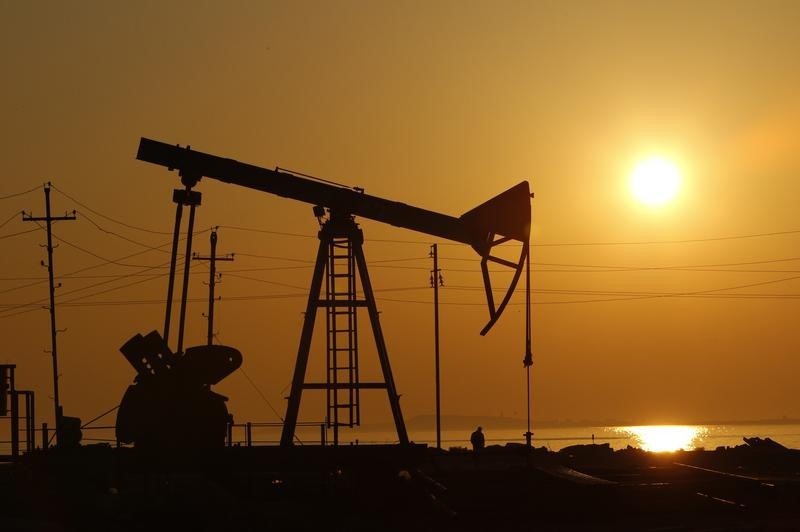German construction sector still in recession, civil engineering only bright spot
(Bloomberg) -- Oil fell as traders assessed an uneven recovery in demand, with U.S. stockpiles dropping but concern about consumption in virus-hit India.
West Texas Intermediate dropped 0.8% in early Asian trading after ending little changed on Wednesday. Major crude importer India is battling a record coronavirus wave that’s sapped economic activity, and against that backdrop Saudi Arabia lowered prices for June shipments to Asian customers. Still, in the U.S., stockpiles declined last week to the lowest level since late February.
Oil has rallied in 2021 as key economies including the U.S. and China rebound from the impact of the pandemic, fanning energy demand. The strength in crude forms part of a broad advance in raw materials, with the Bloomberg Commodity Spot Index surging to the highest level in almost a decade. On Wednesday, global benchmark Brent came close to topping $70 a barrel.
Still, the outbreak has rapidly worsened in India since the start of April, and the country is now reporting more than 350,000 cases every day. Saudi Arabia’s state energy firm, Saudi Aramco (SE:2222), reduced June pricing to Asia by between 10 and 30 cents per barrel. The key Arab Light grade for the region was cut to $1.70 a barrel above the benchmark, from $1.80 for May.
Oil prices are at risk of a correction, according to Bloomberg Intelligence analyst Henik Fung, who cited the threat posed by India’s crisis as well as higher OPEC+ supply. The Organization of Petroleum Exporting Countries and its allies are raising output by about 2 million barrels a day through to July.
In the U.S., government data showed crude stockpiles contracted by nearly 8 million barrels last week and exports surged, but gasoline inventories rose for the fifth straight week. Separately, pent-up travel demand in the country is seen spurring a 30% jump in jet fuel use this summer.
Brent’s prompt timespread was steady at 41 cents a barrel in backwardation on Thursday, compared with 31 cents a month ago. That’s a bullish pattern, with near-term prices trading above those further out.
©2021 Bloomberg L.P.
